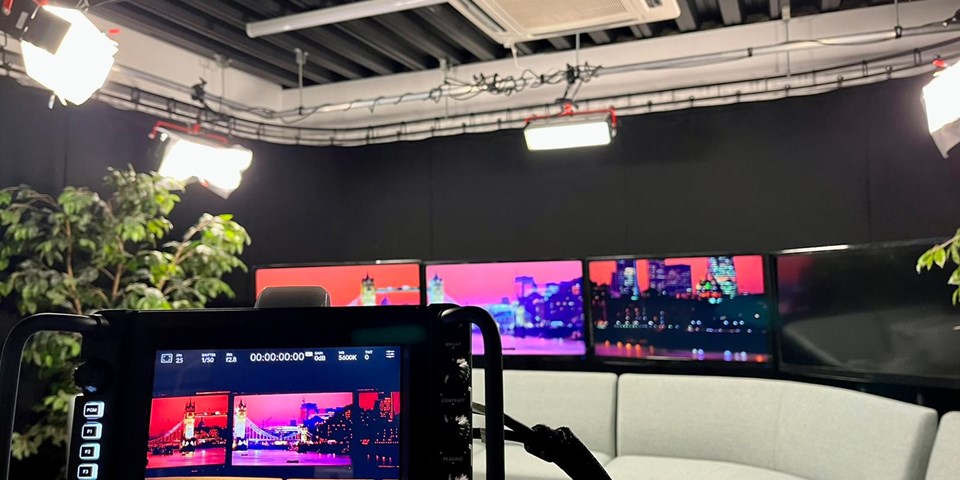Walking out of a media interview is a cardinal sin.
It is a situation that must be avoided, as we always stress during our media training courses.
Yet, it is something that continues to happen when spokespeople face questions they don’t want to answer.
And the latest example, which Sky News says could have been avoided by opting for a live interview rather than a pre-recorded one, resulted in a high-profile departure a few days later.
Woolworths in Australia is a supermarket brand rather than the high street destination for pick n’ mix treats we used to have here.
And alongside its main rivals, Coles, it has been at the centre of allegations of price-gouging tactics (increasing the prices of goods, services, or commodities to a level much higher than is considered reasonable or fair).
Those claims, with reports of unfair dealings with suppliers and farmers, were the focus of an investigation by the Australian Broadcasting Corporation’s Four Corners programme.
And the documentary featured its boss Brad Banducci walking away from the interview.
It came after he made comments about Rod Sims, the former boss of the Australian Competition and Consumer Commission.
He said Mr Sims was “retired” and suggested he no longer understood the grocery market.
But he then appeared to have second thoughts and asked for the remarks to be “edited out”, saying, “I shouldn’t have said that.”
When the journalist said the interview was on the record, Mr Banducci stood up and said: “Yeah, no, I think I’m done, guys.
“You know, I do this with good intent. I don’t do this with bad intent.”
Mr Banducci did return to the interview a few minutes later after speaking to his PR team, but the damage had been done.
This is what happened when Four Corners asked Woolworths CEO Brad Banducci about the lack of competition in the Australian grocery market.
— ABC News (@abcnews) February 19, 2024
Watch the #4Corners documentary tonight: https://t.co/dDRYGLaw2i pic.twitter.com/bsrJD9IETB
As well as a series of damning headlines, the footage was also shared extensively on social media. It is worth knowing it has been viewed more than two million times on TikTok.
And a few days after the interview, it was announced the boss would be stepping down.
Woolworths has insisted his departure is not related to the interview walkout.
However, the media is not convinced. It continues to link his departure to the media interview disaster.
Woolworths CEO Brad Banducci announces he's stepping down days after walking out of ABC interview Daily Mail
Woolworths CEO Brad Banducci announces departure days after walking out of Four Corners interview Australian Broadcasting Corporation
Woolworths group CEO Brad Banducci steps down after interview storm-out NZ Herald
So, what can you or your spokesperson learn from it?
Never walk away
No matter how bad an interview is going, never walk away.
When you are filmed walking away from a TV interview, you can guarantee the footage will be used.
It looks dramatic, petulant and evasive and suggests the spokesperson – and their organisation – has something to hide.
It becomes the story, and the clip will be played over and over again. Four Corners used the footage to tease their programme.
Angus Grigg, the journalist who carried out this interview, said: “I think it shows you really that there you have the boss of the largest supermarket chain in the country really unwilling to face too many questions, and it shows how little scrutiny they've had over the years.”
Edit?
The Woolworths CEO’s walkout was not triggered by a particularly challenging question.
It was caused by saying something he quickly regretted or felt had gone too far.
But asking the journalist to edit it out was a mistake that told the journalist he had got a story.
Andrew Bolt, a Sky News presenter in Australia, said it was “like putting up a red flag saying ‘use this bit’.”
He added: “It is just so stupid the idea that you can browbeat the journalist into not using the best bit he has got so far.
“Honestly, rookie errors.”
If he felt he needed to correct his comment, a better approach would have been to say something like: “What I just said wasn’t fair. What I think is…” and then got back to his message.
Anticipate
You can usually anticipate challenging questions.
As we have said in our media training blogs many times, preparation lies at the heart of media interview success.
Mr Banducci should have known questions would be asked about the supermarket sector being concentrated and the views of Mr Sims were likely to be asked.
Know the journalist
Not living in Australia, I know little about the journalist who carried out the interview.
But media spokespeople should always have an understanding of the person asking the questions.
What is their style? Are they a specialist in the subject? Do they have a reputation for asking hard-hitting questions?
Once you know that information and have anticipated tricky questions, have a dummy run of the interview.

Bespoke courses are not our only training option. If you have someone a little more junior you need to train or are happy to attend a course with people from other organisations, an open course could be the right option. Click here to see our latest media skills, presentations skills and podcasting open course dates.
Choose live
I don’t know if the Four Corners programme format allows for live interviews.
During our media training courses, we find spokespeople tend to have a natural hesitancy about live interviews and prefer the additional security of pre-recorded interviews.
But that can be misplaced.
Live interviews are typically much shorter than pre-recorded ones, leaving much less time for tough questions and added scrutiny.
When you go live, you control what the audience sees and hears.
The journalist no longer gets to select which bits of the interview go out.
It was another point Sky News made during its analysis of the interview disaster.
Mr Bolt said: “A little word of advice to executives. If you think you are going to be filleted, but you do think you need to go on and put your case to air, ask for a live interview.”
Media training
We know you expect us to say this one.
But good media training, carried out by current working journalists, is crucial for helping CEOs survive media interviews and thrive.
It is much better to discover the questions your spokespeople are most anxious about in the training studios than in a real interview.
Woolworths has been keen to highlight Mr Banducci’s achievements as its boss.
But he will now always – at least partly – be remembered as the man who walked away from an interview.
It brought back memories of Persimmon boss Jeff Fairburn, who walked away from a BBC interview after being asked about his eye-watering £75m bonus.
Just like the boss of Woolworths, a few days after he opted for the media interview self-checkout, his time at the top came to an end.

We will be discussing learning to speak like a TED Talk pro on Wednesday 13 March. TED Talks are viewed more than 1.5 million times a day. And we believe there is plenty other presenters can learn about public speaking from them. Click here to grab four FREE place.
Media First are media and communications training specialists with over 35 years of experience. We have a team of trainers, each with decades of experience working as journalists, presenters, communications coaches and media trainers.
Click here to find out more about our media training.
Subscribe here to be among the first to receive our blogs.


